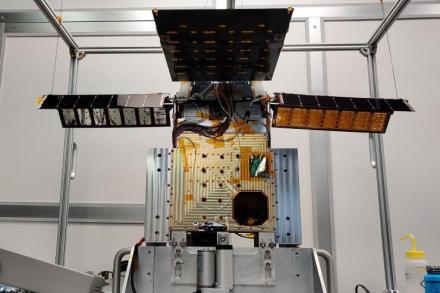Lunar Flashlight Operations

Lunar Flashlight is a JPL 6U CubeSat mission whose objective is to investigate the lunar poles for water ice and other volatiles. It is planned for launch as a secondary payload on Artemis-1, and endeavors to be the first CubeSat to reach the moon. Except for the recent JPL MarCO CubeSats that visited Mars in November 2018, CubeSats have been mostly limited to Earth orbiting missions. Lunar Flashlight aims to add to the flight experience of deep-space CubeSats and demonstrate their ability to conduct space science missions at a fraction of the cost and complexity of larger missions. While the MarCO CubeSats performed a short-duration fly-by maneuver, Lunar Flashlight will conduct an orbit insertion using a green monopropellant propulsion system developed uniquely for this mission. The custom designed propulsion system developed by NASA Marshall Spaceflight Center (MSFC) and Georgia Tech's Space Systems Design Laboratory (SSDL) delivers over 3000 N-s of total impulse for the orbit insertion and necessary attitude maneuvers, fits within a 2.5U volume, and has a total wet mass under six kilograms. Upon completion, Lunar Flashlight may become the first CubeSat to achieve orbit around a planetary body besides the Earth, which is enabled by the new propulsion system.
As of October 2023, the spacecraft ownership has been transferred from JPL to Georgia Tech. SSDL students have been operating the spacecraft from the GT Mission Control Center located in the SSDL building.
Lunar Flashlight stories
- https://coe.gatech.edu/news/2022/11/mission-moon-lunar-flashlight
- https://coe.gatech.edu/news/2023/10/students-controlling-interplanetary-spacecraft-nearly-37-million-miles-campus
